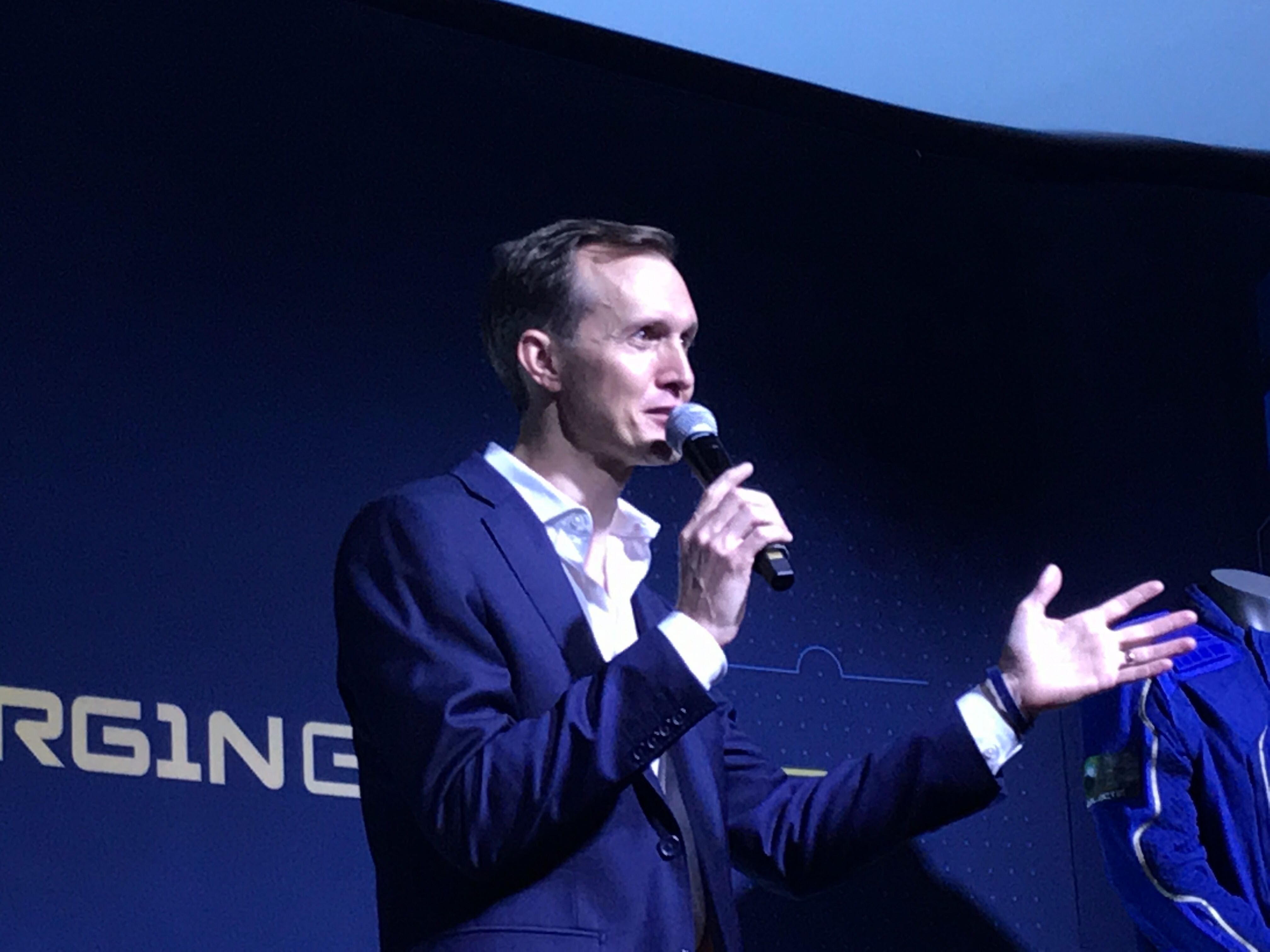Vertical Research Partners is the first firm to begin covering Virgin Galactic, initiating the space tourism venture’s stock with a “buy” rating and saying its risk “is misunderstood.”
“We think the technical risk to SPCE’s human spaceflight program is less draconian than the stock appears to be pricing in,” analyst Darryl Genovesi said in a note to investors.
Virgin Galactic began trading publicly last week, following the completion of its merger with Chamath Palihapitiya’s venture Social Capital Hedosophia. Genovesi sees Virgin Galactic, ticker ‘SPCE,’ as a standout for being the only stock investors can trade in a niche but growing market.
“SPCE is the only means by which a public equity investor may gain pure-play exposure to human spaceflight, a socially-important endeavour, and the only means by which a public equity investor may gain ANY exposure to space tourism, creating scarcity value that we think can drive the stock higher as the risk-profile becomes better understood by investors,” Genovesi said.
Shares of Virgin Galactic initially rose in trading on Tuesday following Genovesi’s call. But the stock reversed course midday, slipping 3.4% from its previous close of $9.35 a share. Vertical Research has a $20 price target on the stock, more than double its current price.
Quantifying the potential risk of accidents
Virgin Galactic spacecraft Unity fires its engine and heads to space with its first test passenger on board in February 2019.
Virgin Galactic | gif by @thesheetztweetz | CNBC
Virgin Galactic plans on flying high net worth individuals through extreme environments, and an accident mid-flight could be fatal. In 2014, an accident during a Virgin Galactic test flight killed its co-pilot. Since that fatal crash, the company updated the spacecraft and has spent the last few years verifying its rocket-powered vehicle can safely and repeatedly fly people to the edge of space.
Genovesi noted the safety risk as a particular weight on Virgin Galactic’s stock price, saying “the market appears to imply a high probability of failure, higher than we believe is appropriate.” His firm believes investors are using “a Space Shuttle like crash rate” to estimate Virgin Galactic’s potential failure rate. The Space Shuttle had two fatal accidents in 135 flights, or a crash rate of 1.5%. But that isn’t an accurate comparison, Genovesi says.
“Shuttle’s mission profile was much more demanding than SPCE’s space tourism mission profile is,” Genovesi said.
Vertical Research partners sees Virgin Galactic’s spacecraft as more comparable to the X-15 rocket-powered aircraft flown by NASA and the U.S. Air Force in the 1960s. The X-15 crashed once in 199 flights, a crash rate of 0.5%.
“And that was 50 YEARS AGO, meaning SPCE can likely to better,” Genovesi said. “Additionally, we don’t think a catastrophic failure would necessarily end the program as both Shuttle and X-15 programs continued following their respective fatal crashes and SPCE appears to have retained ~90% of its backlog through its fatal crash in 2014.”
Virgin Galactic has 603 customers signed up to fly once it begins commercial operations next year, at a price of $250,000 per ticket. Genovesi reiterated an advantage outlined by Virgin Galactic CEO George Whitesides to CNBC last week: The space tourism venture is essentially a bet on the fast growing luxury experiences market.
“Globally, we think around 2 million people can experience this over the coming years at this price point,” Whitesides said.
The analyst believes Virgin Galactic represents an opportunity to invest in three areas: The rapidly growing luxury consumer market, the pioneering of new technologies and “the recently popular theme of experiences over possessions.”
“In short, we don’t think SPCE will have any trouble getting customers to sign up to come to space while the economics of its operation (70% incremental EBITDA margins) are highly attractive,” Genovesi said.
– CNBC’s Michael Bloom contributed to this report.
